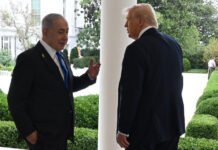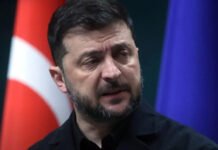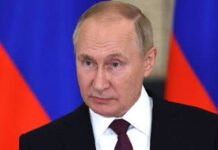President Donald Trump is set to arrive at the NATO summit in The Hague on Tuesday, just days after ordering airstrikes on Iran’s nuclear sites and only hours after announcing a ceasefire between Israel and Iran. The trip marks his first appearance among European allies since returning to the White House in January 2025.
Trump Leaves Amid Middle East Crisis
The timing of this high-stakes summit is unmistakable. On Monday night, Trump confirmed via social media that a ceasefire agreement had been reached between Israel and Iran, writing:
“This is a War that could have gone on for years, and destroyed the entire Middle East, but it didn’t, and never will!”
This came just after Iran launched retaliatory missile strikes against the U.S. Al Udeid Air Base in Qatar. According to Trump, 13 of the missiles were intercepted and one missed its target. He emphasized that “no Americans were harmed”, thanking the early warning from Iran and the effectiveness of U.S. defense systems.
A Brief but Loaded Diplomatic Trip
Trump’s visit to the Netherlands is expected to be short but intensely scrutinized, with foreign leaders certain to seek clarity on America’s new posture in the Middle East. According to the official schedule:
Tuesday Evening (Netherlands time)
Arrival in The Hague
Attendance at a formal royal dinner at the Netherlands Royal Palace, hosted by the King and Queen
Participation in the official NATO family photo
Wednesday (Summit Day)
Photo session with NATO Secretary General Mark Rutte
Attendance at the plenary session with NATO leaders
Bilateral meetings with select heads of state (not yet disclosed)
Press conference, where he’s expected to face tough questions about the Iran airstrikes and regional strategy
Departure for Washington, D.C. on Wednesday evening
Tensions Still Linger Over Iran and Israel
Despite the ceasefire announcement, tensions in the region remain high. The airspace over parts of the Middle East remains restricted, and European intelligence services are monitoring Iranian troop movements closely.
Trump’s decision to strike Iranian nuclear facilities was met with mixed reactions globally — praised by hawkish allies, condemned by critics, and met with stern warnings from Tehran. His return to the international stage at NATO comes with these tensions still fresh.
European Leaders Watching Closely
This week’s NATO gathering is not just a photo op. For many European leaders, this summit is a barometer of Trump’s new foreign policy approach, particularly:
How Trump plans to manage future flare-ups with Iran
Whether the ceasefire holds beyond headlines
How NATO allies are expected to support or distance themselves from U.S. strikes
Sources close to diplomatic circles suggest Germany, France, and Turkey are preparing pointed questions regarding Trump’s endgame in the region.
The G7 Departure Still Looms
Trump had previously left the G7 Summit in Canada early, citing the need to monitor the growing Israel-Iran confrontation from Washington. His early exit sparked concerns among allies about U.S. reliability during multilateral crises. Those concerns are likely to follow him to The Hague.
A High-Risk, High-Reward Moment
Trump arrives at NATO not just as a returning president but as a commander who has just ordered one of the boldest military actions in years. Whether that gamble results in lasting peace or renewed war, the verdict is still pending — and this week’s summit may offer the first glimpse of where global allies stand.
As the world watches, Trump walks into The Hague with a ceasefire on paper, missiles in the rearview, and questions waiting on every podium.
















